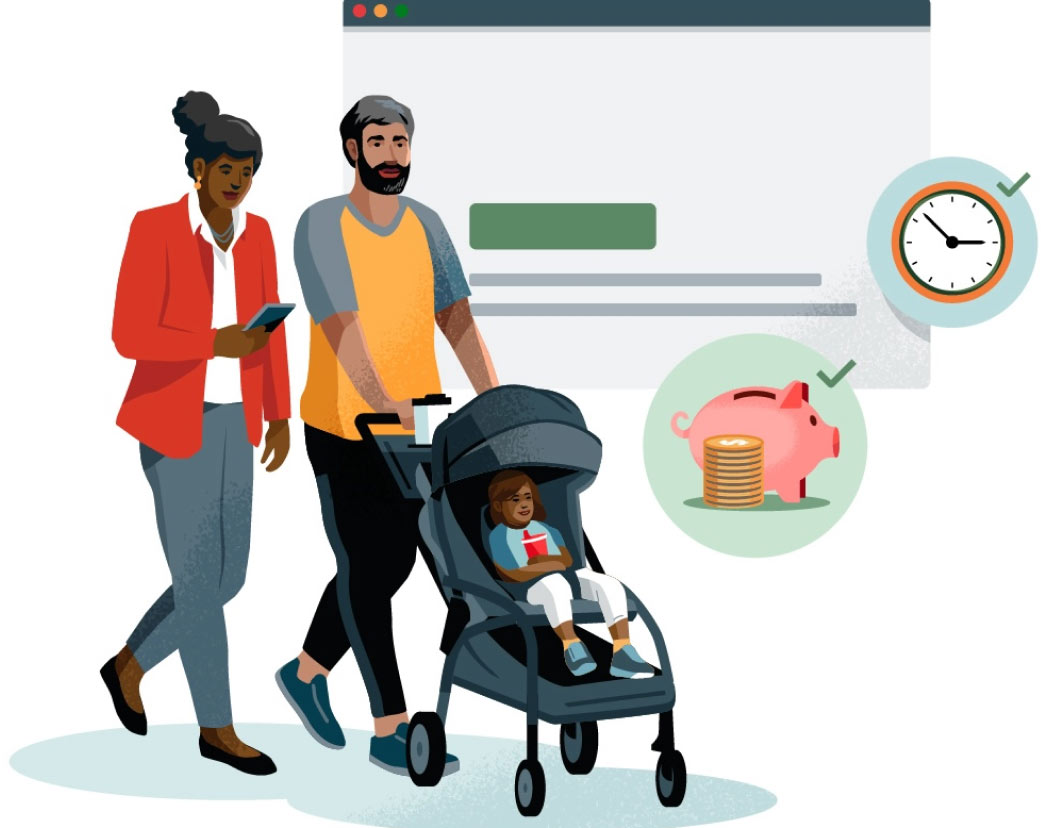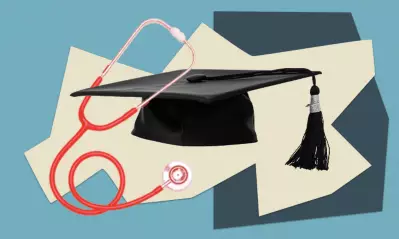
Online RN to BSN Degree
Registered Nurse to Bachelor of Science in Nursing
With an online RN to BSN degree you can take your passion for patient care to the next level. Transfer credits from your Associate Degree in Nursing (ADN) and complete your RN to BSN in as little as 14 months and for 14K. You must have an active and unencumbered RN license prior to enrolling.
Job-ready skills for your professional profile

Leadership: Apply leadership and organizational principles that promote safe healthcare delivery and nursing practice.
Communications: Integrate patient care communication and information technology systems in healthcare delivery to improve patient outcomes.

Leadership: Apply leadership and organizational principles that promote safe healthcare delivery and nursing practice.
Communications: Integrate patient care communication and information technology systems in healthcare delivery to improve patient outcomes.
Operations and Policy: Incorporate strategies that influence health policy at state, national and international levels for delivering safe, quality patient care.
Operations and Policy: Incorporate strategies that influence health policy at state, national and international levels for delivering safe, quality patient care.

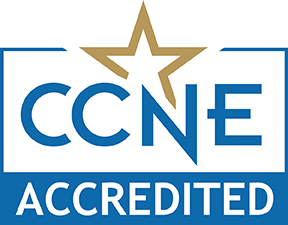
programmatic accreditation
The baccalaureate degree program in nursing, master’s degree program in nursing and Doctor of Nursing Practice program at University of Phoenix are accredited by the Commission on Collegiate Nursing Education, 655 K Street, NW, Suite 750, Washington, DC 20001, 202-887-6791.


Career-relevant education with real-world value
Program at a glance

The program curriculum is aligned with recommendations by leading nursing organizations, such as:
- American Association of Colleges of Nursing (AACN®)
- Quality & Safety Education for Nurses (QSEN)

The online RN to BSN degree includes a capstone course that helps you integrate and synthesize the content and experiences from all nursing courses into a final leadership project.

Learn how to implement appropriate health promotion and disease prevention strategies for diverse individuals, families and populations across the life span.
Program by the numbers
$14K
Cost of tuition & fees[1]
14 months
Average program length with 87 transfer credits
33 credits
Required with an active RN and ADN
87 credits
Eligible transfer credits
[1] Standard track RN to BSN with 87 transfer credits : $350/credit x 3 credits + $170 resource fee = $1,220 per course x 11 courses =Estimated program cost of $14K.
Time is valuable – don’t spend it repeating coursework. Finish what you started.
Courses for the Registered Nurse to Bachelor of Science in Nursing
Find what you'll learn in a course – look for the skills-aligned trophy cup
Using labor analytics data, we embed skills you’ll need in the growing nursing field into each course of your online RN to BSN degree. You’ll learn about health information technology for nursing, healthcare policy and professional nursing leadership perspectives.
Requirements and course details
Your course schedule may vary based on transfer credits or credits earned through the University’s Prior Learning Assessment.
- Completion of a minimum of 120 credits, including:
- General education: 47 credits
- Core courses: 33 credits (includes 90 direct care clinical hours)
- A minimum of 40 lower division nursing credits
- A minimum grade point average (GPA) of 2.0
Core courses build the bulk of program-specific knowledge. Our online RN to BSN degree curriculum develops on a foundation of biological, physical and social sciences paired with the intellectual, social and cultural aspects of the professional nurse.
You’ll learn how to:
- Demonstrate evidence-based, holistic patient-centered care that reflects knowledge of the health-illness continuum.
- Apply models and processes to promote public health and disease prevention strategies for diverse individuals, families and populations across the life span.
- Demonstrate professional standards of moral, ethical and legal conduct in the healthcare industry.
- Apply leadership and organizational principles that promote safe healthcare delivery and nursing practice.
Your RN to BSN degree online has two courses that each require 45 direct care clinical hours. While you complete the instructional portion of these courses 100% online, you can complete the direct care clinical hours in your own community.
If you reside in California, our BSN degree provides you with coursework that’ll allow you to apply for a Public Health Nurse (PHN) certification in California.
Program Purpose Statement
The RN to BSN program is a post-licensure education program designed for nurses with active, unencumbered RN licensure who wish to obtain a bachelor’s degree in the professional field of nursing. The program is designed to develop the professional knowledge and skills of registered nurses and prepare them as generalists who are able to apply critical thinking, professional skills and knowledge to patient outcomes and healthcare systems. Learn more from the Nursing Program Handbook.

Choose a program track for your online RN to BSN degree
If you have strong time management skills, learn independently and have at least a year of experience as an RN, a competency-based program can help you finish your degree in as little as 12 months. Compare with a traditional RN to BSN degree and choose a learning style that fits you.

Duration: 48 weeks minimum
Pace: About 4 months to complete 4 courses, which can be taken one at a time
Learning style: Self-paced, flexible format with faculty guidance to help prepare for competency assessments
Duration: 150 weeks
Pace: About one 5-week course at a time
Learning style: Traditionally structured format led by instructors with weekly due dates
How skills-aligned learning works
What’s something employers are looking for in job candidates? Skills! That’s why we believe in career-focused education. Our programs are designed to help you demonstrate career-relevant skills and put them into practice within weeks, not years. Here’s how:
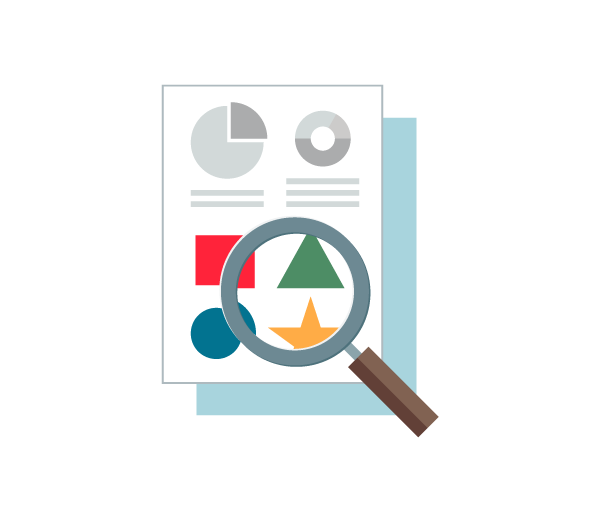
Curriculum
We work with a labor market analyst to identify skills today’s employers want in job candidates and embed those skills in our program’s curriculum.
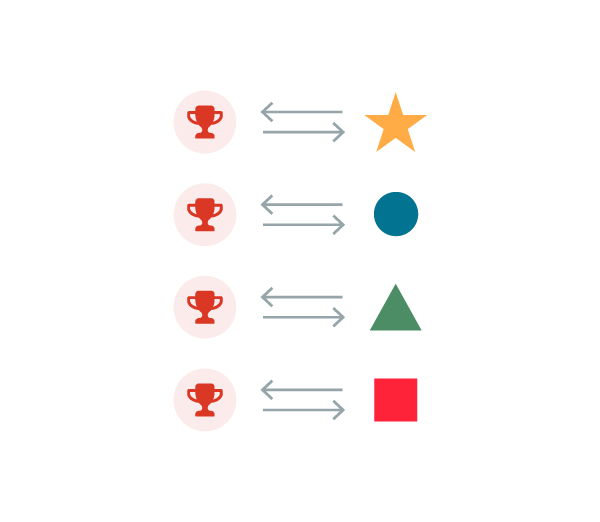
Courses
Each course you take teaches specific career-relevant skills – one skill per credit, on average. For a 3-credit course, you can earn 3 career-relevant skills.

Careers
Demonstrate your newly acquired skills, earn badges, build your professional profile and show potential employers what you bring to the table.
Career opportunities with an online RN to BSN degree
Our program isn’t just about earning a nursing degree – it’s about getting ready for your career. Learn practical knowledge and develop skills to prepare for roles as a charge nurse, public health nurse or director of nursing.

Top skills learned in this program:
- Business Management for Nursing Professionals
- Communications
- Compassion in Population Health
- Coordinating Safe Care
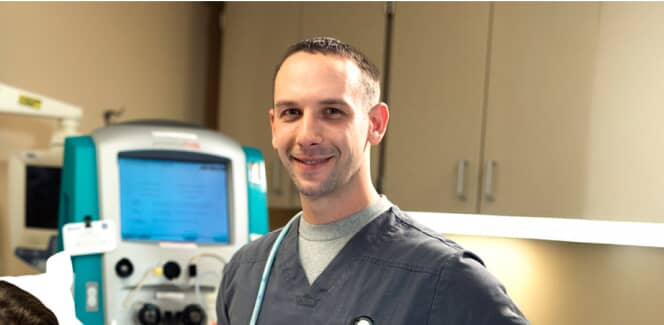
An RN to BSN can prepare you to be a:
- Charge Nurse
- Public Health Nurse (PHN)
- Director of Nursing (DON)

You may work in:
- Hospitals; state, local and private
- Ambulatory healthcare services
- Government
- Nursing and residential care facilities
- Educational services; state, local and private



Career guide
Charge Nurse
Learn more about the career opportunity as a charge nurse. Our career guide provides deeper insight into salary ranges and in-demand skills.

Career outlook
5% growth
According to the Bureau of Labor Statistics, job growth for registered nurses is projected to be faster than average between 2024 and 2034.
The BLS Projected Growth for 2024-2034 is published by the US Bureau of Labor Statistics. This data reflects the BLS’ projections of national (not local) conditions. These data points are not specific to University of Phoenix students or graduates.



Career story
There were times when my goal seemed so far off, but I did it.”
Dawn Nolan Kerrigan, RN to BSN 2014
Cost and savings
Paying for school
Tuition is based on number of credit hours per course. Courses are typically 3 credits, but can range from 1-6 credits. Costs do not include savings opportunities like transfer credits and scholarships.
What affects the overall cost of my program?
Your full program cost can vary by:
- Savings opportunities. Your cost could be reduced with eligible transfer credits, scholarships, employer discounts and more. Students with eligible credits and relevant experience on average saved $11K and 1 year off their undergraduate degree at University of Phoenix.
With our Tuition Guarantee, you pay one flat, affordable rate from the moment you enroll to the day you graduate from your program.
Discover ways to save time and money on your degree with our Savings Explorer® tool:
Other ways to save on time and tuition
Because we believe everyone deserves an affordable education, we work hard to help our students achieve one. Here’s a few ways you can save time, save money and avoid starting from scratch.
Transfer credits
Your prior eligible college credits can lower your cost and help you graduate sooner. As a transfer-friendly university, we accept eligible credits from 5,000+ accredited institutions.
Employer tuition benefits
Are you employed? Check to see if your employer has an alliance agreement with us for education benefits. This can help you save money while gaining skills that could apply to your job.
Credit for life experience
We look at all your relevant experience, from parenting to past jobs, to help you get the college credits you deserve. For every 3 credits earned, shave 5 weeks off your degree.
Alumni savings
Are you a Phoenix alum? If so, you’re eligible for special tuition rates and can save up to $2,880 on a bachelor’s degree. You can also save with an alumni scholarship.
Military savings
If you’re an active-duty service member in the U.S. Armed Forces or an eligible spouse or dependent, you may be eligible for a lower, military tuition rate and can save on tuition.
National testing providers
Do you have expertise in a specific subject? Earn college credit based on your performance on national, standardized tests to save time and money on tuition.
We can help you get started
Chat with an experienced advisor who can guide you through tuition, financial aid, scholarships, transfer credits and more.
- View 1
- View 2
- View 3

Budget & borrow
How to pay for college
Paying for school can be intimidating, but we’re here to help you make sense of it. Our finance advisors can walk you through your options like federal financial aid and savings opportunities to minimize your debt. Plus, we can help you figure out your financial plan.
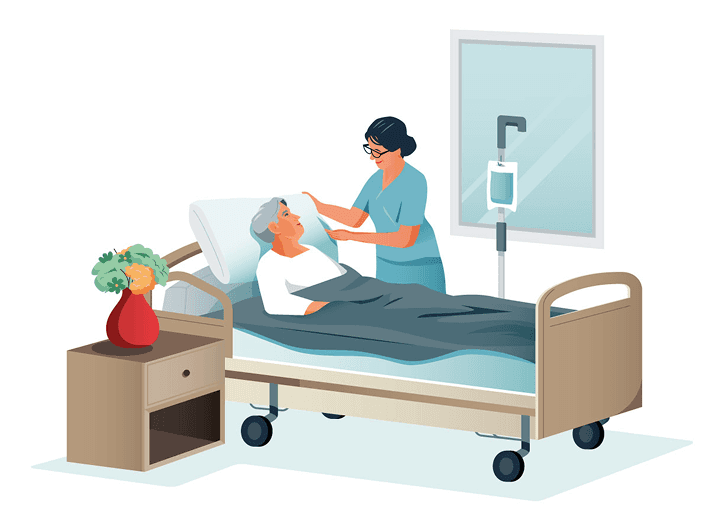
Faster pathways for ADN students
3+1 transfer pathway
Associate degree in nursing students can take 3 years of general course requirements at a participating community college and complete a bachelor’s degree in a little over one year at University of Phoenix. Transfer up to 87 credits and save $144 on every 3-credit course.
Concurrent Enrollment Program (CEP)
You can start RN to BSN upper-division nursing courses at University of Phoenix while finishing your associate degree in nursing with one of our alliance community colleges.

Why choose us?
Where you earn your degree matters

Career-relevant skills
Every five weeks, you can develop career-relevant skills, track your progress in each class and showcase your achievements using your personal skills profile.

Real-world faculty
Your instructors know what works in the real world. As leaders in the field, they bring a hands-on perspective and practical knowledge to the classroom.

Flexible learning + support
Balance it all — work, family and school — with a university built for busy adults like you. Plus, get personal support by phone, chat or email — day or night.

Career Services for Life® commitment
Because your career never stands still, active students get access to career services and resources, from your first class to graduation and beyond, at no added cost.



Dean spotlight
Learn from accomplished nursing professionals
We are preparing the next generation of nurses to make a difference in the lives of patients, their families and the community.”
Raelene Brooks, PhD, RN
Dean, College of Nursing
Frequently asked questions about the RN to BSN degree
In our bachelor’s in nursing program, you’ll take most of the courses online. However, two courses require face-to-face direct care clinical hours.
While internships are not required, direct care clinical hours must be completed face-to-face in community settings for clinical experience. You’re required to complete 45 direct care clinical hours in each of the two courses for a total of 90 hours.
The RN to BSN degree online at University of Phoenix is a post-licensure education program. You can also transfer an associate degree in nursing (ADN), if applicable, to complete the program faster.
Our bachelor’s in nursing program includes 11 core courses in topics such as health information technology for nursing, research outcomes management for the practicing nurse, healthcare policy and public health.
No, a bachelor’s degree in nursing is not the same as a registered nurse (RN). A BSN is an educational degree in nursing. An RN designation may only be used after completing all requirements and obtaining licensure by a state board of nursing as a registered nurse. If you’re an RN, you can pursue a BSN degree for expanded skills and greater career opportunities in your field.
The length of time to complete your bachelor’s in nursing program varies depending on the nursing program you choose and your educational history.
- Our traditional RN to BSN degree online can be completed in as little as 14 months for students who transfer in an associate degree in nursing (ADN). RNs without an ADN transfer will be awarded 40 total credits and may complete their degree in 2.5 years.
- Our competency-based RN to BSN program can be completed in as little as 12 months but requires at least one year’s experience as an RN and is self-paced, independent learning.
Yes, our RN to BSN degree online is designed with the working registered nurse (RN) in mind. You’ll take one course at a time, every five weeks, and all the instructional information is delivered on your schedule. This is important because we understand nurses like you are likely working around the clock and need to be able to complete assignments at a time that’s convenient for you and your schedule.
While widely available, not all programs are available to residents of all states. Please check with a University Enrollment Representative.
